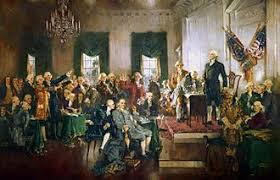About
The Libertarian Latter-Day Saint is not only the name of the blog, but it’s also what Charlie Day identifies as. While he follows the guidelines of the Church of Jesus Christ of Latter-day Saints, he also values political freedom. He believes that everyone should have the right to make their own choices without any outside or adverse intervention. That way one can succeed or fail based entirely on his or her own merits. Mr. Day is a former US Customs Inspector and served as a U.S. Customs advisor to the Saudi Arabian Department of Customs, and he boasts a degree in political science. Although he is more than qualified to talk about political, economic, religious or philosophical issues, he stresses that he does not speak in any official category for the Church of Jesus Christ of Latter-day Saints. This sets him apart from most political blogs that were set up by non-professionals. Mr. Day decided it was time that he shares his unique views with the world. He loves to encourage reader interaction and to get healthy debates going. Don’t be shy about responding with what you think! The blog is online 24/7 and available to the entire world so long as there’s an internet connection. That means you can join the discussions whenever you want, no matter what time of day or night! Comments and questions will be addressed in a timely manner as well. If you’re part of the Church of Latter-Day Saints, a libertarian, or interested in U.S. or world politics you’re going to want to make this blog your online hangout.

SIGNING THE CONSTITUTION:
A Painting by Howard Chandler Christy
What’s my view of libertarianism? It starts with a small “L”, meaning that it is a philosophy of government and not a political party. Why the distinction? As much as I admire the founding fathers, they had one great failure. They did not anticipate the emergence of the two party system. Had they done so it would have scared them half to death because they started with a healthy skepticism of parties, or factions as they were called. Factions were associated with popular issues or waves of public fervor which the founders associated with a grievous danger to the unalienable rights that they were trying to protect. This was such a concern that the constitution was created with the famous system of checks and balances that were designed to prevent the government from being taken over by a pure democracy. The founders were well educated with a classic understanding of the Greek and Roman philosophers who taught that a government in the throws of popular opinion would trample minorities and lead to the demise of effective government culminating instead in unreasoning mob action. Never the less, when the constitution was presented to the states for ratification many reviewers were unconvinced. Several states demanded additional protections. A Bill of Rights was desired and campaigned for. Madison whom we often call the Father of the Constitution argued in the Federal Papers that the checks and balances were sufficient. But the promise of the inclusion of the Bill of Rights as the first ten amendments to the constitution was necessary to obtain the necessary ratifications. The subsequent history of our nation has proven the Bill of Rights to be a great success in the preservation of those rights. The rights of free speech, religion and the bearing of arms has never been under more serious threat than it is at the present time. But libertarianism reflects a philosophy of government that goes beyond even those essential provisions. Furthermore, the two party system as it is presently instituted precludes even the possibility of the election of third parties. No third party has been elected to national office since the demise of the Whig party prior to the Civil War. So I am a libertarian who votes for a philosophy of government by selecting the candidate whom I feel will most closely follow those principles.
Libertarianism begins by embracing the Lockean theory under which our Declaration of Independence was written. That means that government should prevent the harm that men alone cannot prevent. Harm from individuals, harm from corporations and other organizations, and international harm from other nations. That is why I am not an anti-military libertarian. The motto is truly short and sweet. It means don’t hurt me and don’t take my things. And it means that I trust and expect the government to deliver that protection. Unfortunately, governments themselves are often primary villains in the harm department. That will be the subject of future posts. Among the harms that government should prevent are those that stem from the denial of any of the freedoms enumerated by the Bill of Rights. Post on that will also follow. I hope that this brief description explains a few basic libertarian principles. There is more to come concerning private property and its creation as well as the relationship of church and state. So keep coming back and keep reading.
